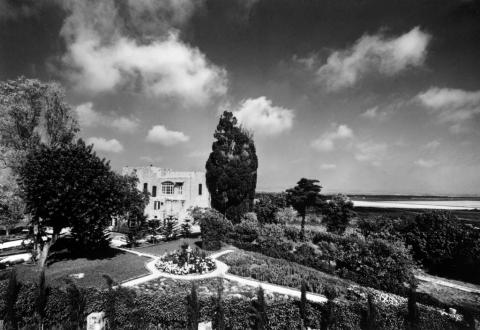He wasn’t interested in the man. He wasn’t interested in his clothes. All he was interested in was interested in was his character and his devotion to the Cause. Someone knocked on the door of the Western pilgrim house, and I opened the door, and a man arrived very poorly dressed and rather a nondescript appearance, and I said, “Yes, what can we do for you? Is there anything that we can do for you?” And he said, “I am Charles Dunning. I am the pioneer from the Orchney Islands.” “Well, come right in.” And I welcomed the man, showed him to his room and made sure that he was comfortable and had one thing and another, and then he was busy during the day and it became time for the Guardian to come over for dinner. It was usual at dinner time to receive the new pilgrims that had come, to have dinner with them and to talk with them and, so, for us it was a very important event . . .
“Well, I said to Charles, we are getting ready to go down to have dinner with the Guardian, and do you think maybe you want to change your clothes and clean up a little bit for the Guardian.” And he says, “Yes, I will. I will.” So he went down and he was wearing the same clothes, which was all right, but when he came in the Guardian put his arms around him and kissed him. Now the Guardian very seldom kissed anyone. He embraced everyone, but he very seldom kissed anyone. And he sat him down at the table next to him, and he said, “You’re a Knight of Bahá’u’lláh, and you deserve to be at the head of this table.” The spiritual insight! The Guardian saw in that man, the sacrifice for the Cause, his devotion for the Cause, his service in those difficult Orchney Islands. You think you have it difficult here, but it is nothing compared to the Orchney Islands, I tell you. People there are hard. People there are disinterested in religion. It’s a cold, miserable country. There’s nothing that lends itself. Here you have the sunshine, you have the flowers, but he was there singly and alone serving in that cold, bleak place, and I think the people are colder than the weather. It’s terrible, and the Guardian realized it. The Guardian said that, after he left, he is one of God’s heroes of the present time. I mention this so you can see how Shoghi Effendi had an insight into everyone; his tenderness, his love.
